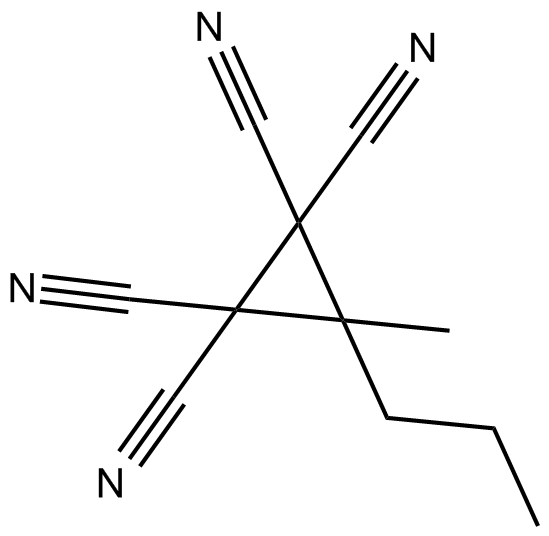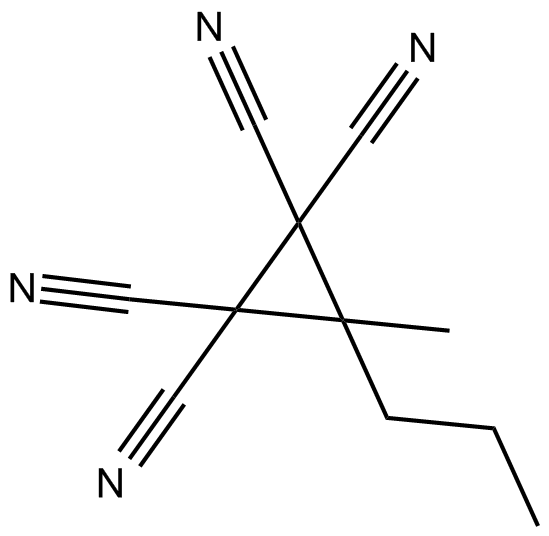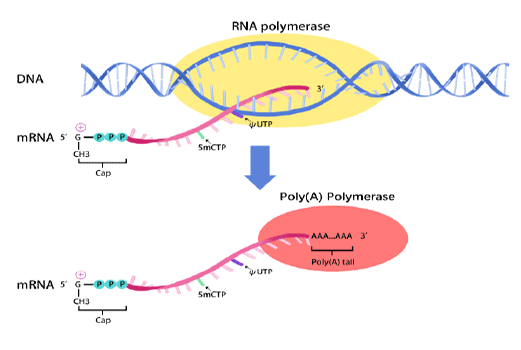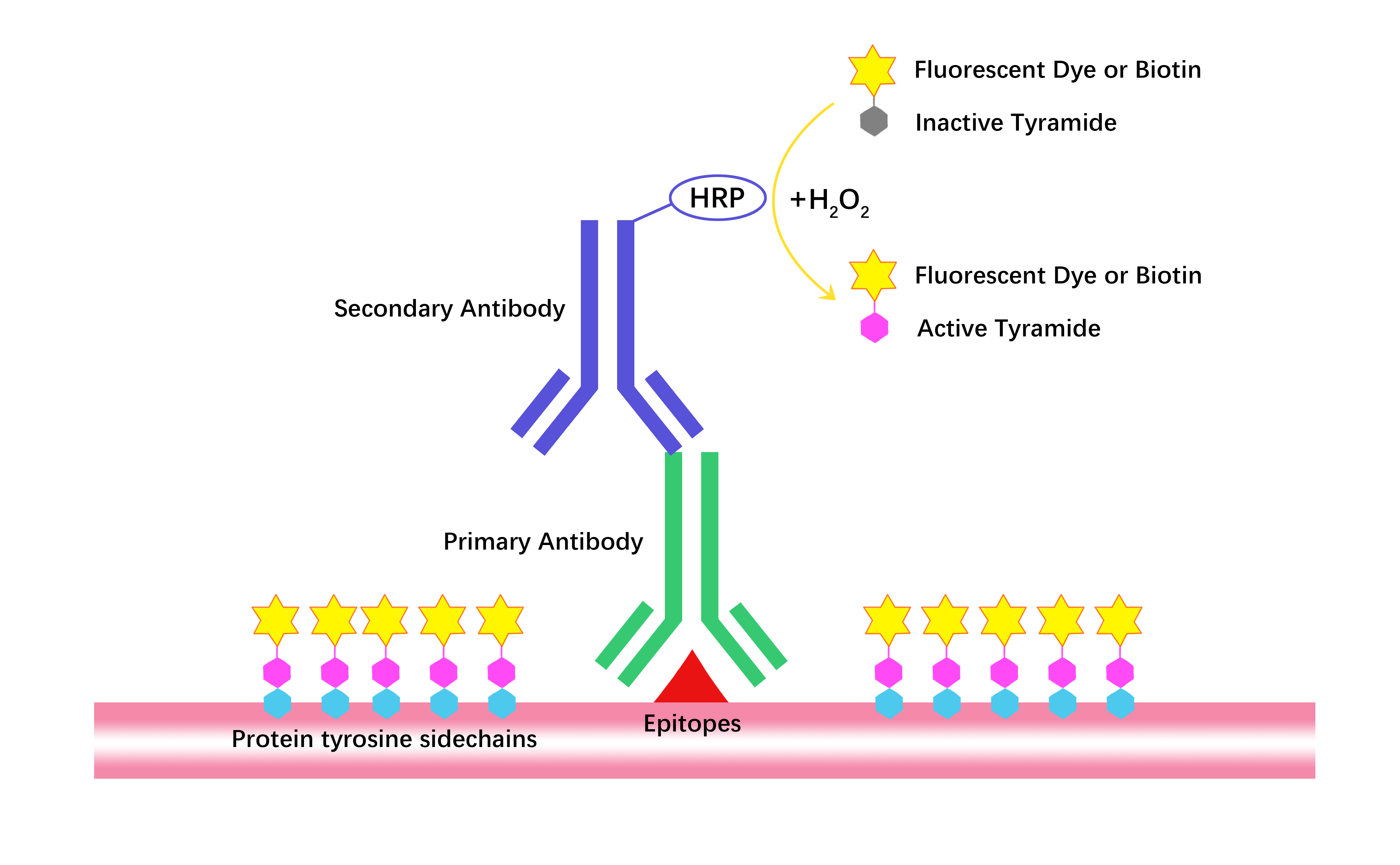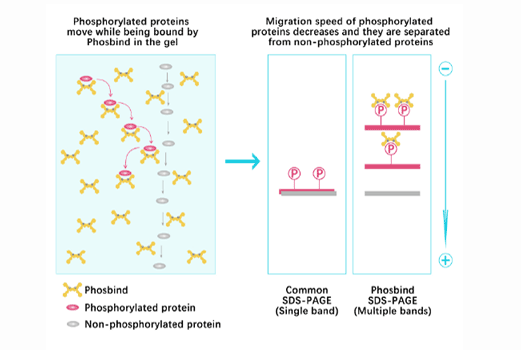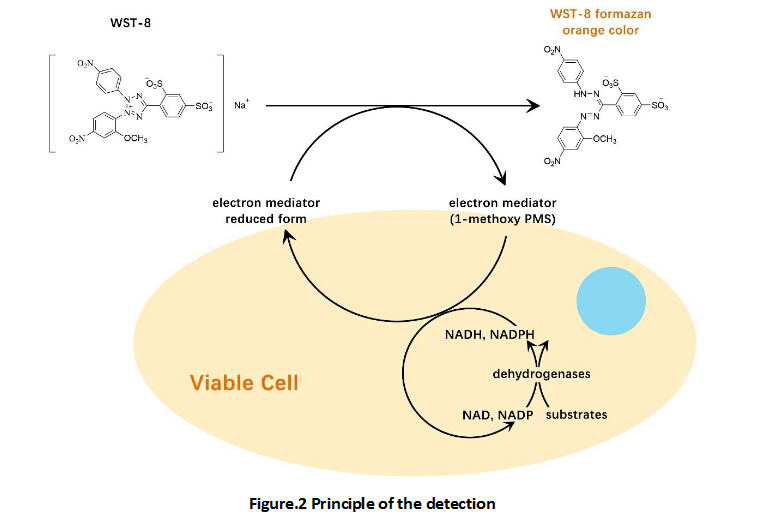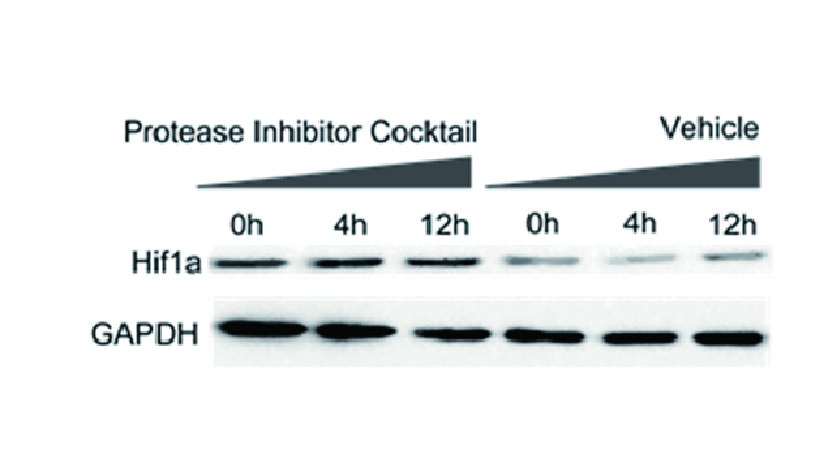CCG 2046
CCG 2046 is an inhibitor of TNF-α with IC50 values of 2.32 µM and 0.66 µM in the HTRF assay and the ELISA assay, respectively [1]. CCG 2046 is also an inhibitor of RGS4.
Three members of tumor necrosis factor (TNF) family are: TNF-α, TNF-β (also called lymphotoxin α, LT-α) and LT-β. Tumor necrosis factor-α (TNF-α) is a secreted cytokine. It plays an important role in immune disorders and inflammatory diseases. TNF-α is also involved in the inhibition of viral replication and in some cases of programmed cell death. At the cellular level, TNF-α can regulate multiple signaling pathways, such as NF-kB activation and apoptosis [1].
Both LPS and TNF-α can downregulate RGS4 [2]. CCG 2046 reduced the RGS4-Gα0 interaction signal with an IC50 value of 4.3 ± 0.2 µM [3]. Infliximab is also a TNF-α inhibitor [4]. IL-10 mRNA was upregulated by 2.6 folds after stimulating mTNF using rabbit antihuman TNF-α polyclonal Ab for 6 hours. WT mTNF-transfected Jurkat cells incubated with infliximab at 10 µg/mL for 24 hours also showed a 2.7-fold increase in the production of IL-10 with statistical significance. These results were indicated by cDNA expression array analysis [5].
Infliximab is described hereafter. 1 h after the infusion with infliximab, concentrations of serum TNF-α protein in a subset of patients were significantly reduced. At 24 and 48 h following the first dose of infliximab, patients showed a significantly declined CCL2 concentration [4]. TNF-α was suggested to promote the expression of CCL2 by tumor cells [6].
References:
[1]. Leister KP, Huang R, Goodwin BL, et al. Two high throughput screen assays for measurement of TNF-α in THP-1 cells. Current chemical genomics, 2011, 5(1): 21-29.
[2]. Magder S, Neculcea J, Neculcea V, et al. Lipopolysaccharide and TNF-α produce very similar changes in gene expression in human endothelial cells. Journal of vascular research, 2006, 43(5): 447-461.
[3]. Roman DL, Talbot JN, Roof RA, et al. Identification of small-molecule inhibitors of RGS4 using a high-throughput flow cytometry protein interaction assay. Molecular pharmacology, 2007, 71(1): 169-175.
[4]. Brown ER, Charles KA, Hoare SA, et al. A clinical study assessing the tolerability and biological effects of infliximab, a TNF-α inhibitor, in patients with advanced cancer. Annals of oncology, 2008, 19(7): 1340-1346.
[5]. Mitoma H, Horiuchi T, Hatta N, et al. Infliximab induces potent anti-inflammatory responses by outside-to-inside signals through transmembrane TNF-α. Gastroenterology, 2005, 128(2): 376-392.
[6]. Ben-Baruch A. Inflammatory cells, cytokines and chemokines in breast cancer progression: reciprocal tumor-microenvironment interactions. Breast Cancer Research, 2003, 5(1): 31-36.
| Physical Appearance | White solid |
| Storage | Store at -20°C |
| M.Wt | 198.22 |
| Cas No. | 13017-69-1 |
| Formula | C11H10N4 |
| Solubility | <19.82mg/ml in DMSO |
| Chemical Name | 3-methyl-3-propylcyclopropane-1,1,2,2-tetracarbonitrile |
| SDF | Download SDF |
| Canonical SMILES | CCCC(C)(C1(C#N)C#N)C1(C#N)C#N |
| Shipping Condition | Small Molecules with Blue Ice, Modified Nucleotides with Dry Ice. |
| General tips | We do not recommend long-term storage for the solution, please use it up soon. |
Quality Control & MSDS
- View current batch:
-
Purity = 98.00%
- COA (Certificate Of Analysis)
- MSDS (Material Safety Data Sheet)
- Datasheet
Chemical structure
